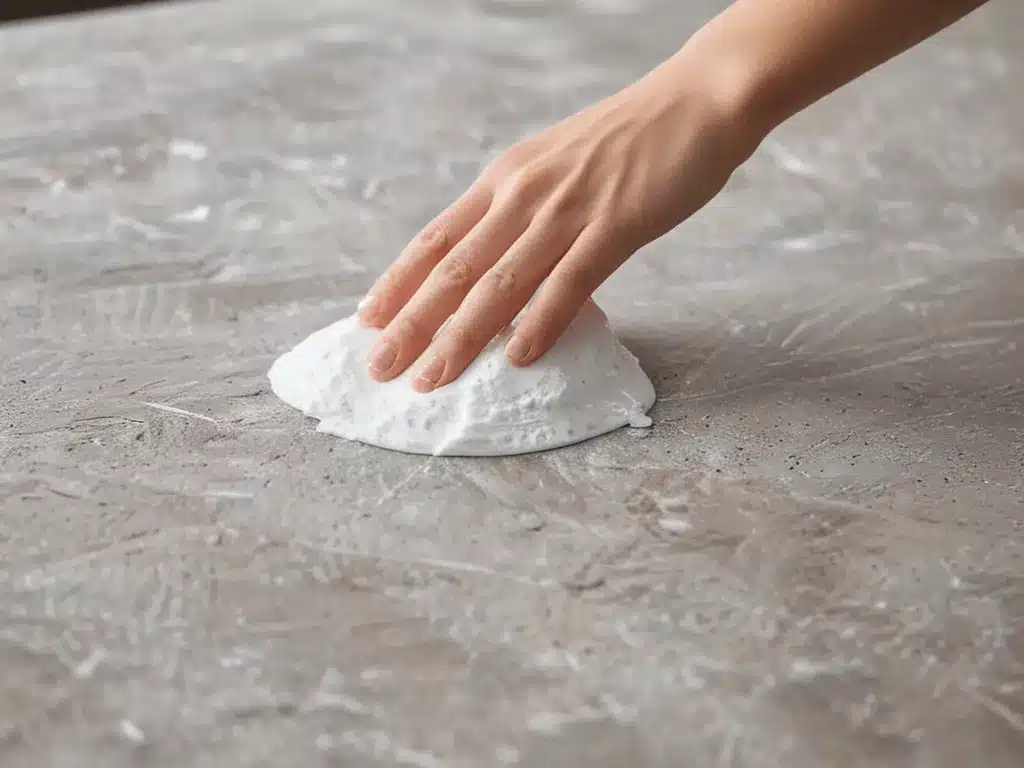I often find myself frustrated when my plastic surfaces lose their luster and become dull and faded. As someone who takes pride in keeping my home looking its best, I’m always on the hunt for easy and effective cleaning solutions. Recently, I discovered that one simple pantry staple can make scratched and lackluster plastics look brand new again – vegetable oil.
Why Plastic Becomes Dull Over Time
Plastic is durable, but it can become scratched and damaged with regular use. Over time, tiny abrasions in the surface cause light to diffuse instead of reflecting cleanly off the surface. This makes the plastic look dull and hazey. Additionally, plastic is porous, which allows grime, dirt and even some stains to get lodged in the surface. This further reduces the shine and luster of plastic over time.
Vegetable Oil Renews & Protects Plastic
Turns out, vegetable oil has properties that help renew plastic and make it shine like new again. Here’s how it works:
-
Fills in Scratches – The oil is able to penetrate into tiny scratches and grooves on the plastic surface. This helps smooth over imperfections and fill in the abrasions that cause dullness.
-
Seals Out Dirt – The oils also act as a sealant when buffed into the plastic. This creates a protective barrier that prevents grime and dirt from getting into pores and further dulling the surface.
-
Renews Shine – Vegetable oil has a natural gloss, so buffing it into scratched plastic helps restore its reflective properties. The oil brings back that smooth, glass-like shine.
-
Prevents Haziness – That sealed barrier of oil also prevents soap scum, hard water deposits and chemical residues from causing clouding and haziness on plastic surfaces.
So with just some basic vegetable oil, you can breathe new life into dull, lackluster plastics throughout your home. It’s a cheap and easy trick to make them look their best again!
Which Oils Work Best?
You likely already have vegetable oil on hand that will do the trick. But here are some of the best options:
-
Olive Oil – Extra virgin olive oil contains moisturizing compounds that penetrate scratches well and leave behind a glossy shine.
-
Coconut Oil – Ideal for restoring luster to faded plastic. The emollients help smooth over damage and seal out dirt.
-
Almond Oil – Light and fast-absorbing, it revitalizes dull plastic without leaving behind any greasiness.
-
Sunflower Oil – Affordable and effective at sealing out grime that causes haziness in plastic. Leaves a like-new sheen.
-
Jojoba Oil – Actually a liquid wax, so it deeply seals plastic with a protective, light-reflecting barrier.
How to Make Plastic Shiny with Vegetable Oil
Here is the incredibly easy process I use to make my plastic surfaces shine using this kitchen staple:
What You Need
- Vegetable oil of your choice
- Soft cloth
- Paper towels
- Toothbrush or other small scrub brush
Step 1 – Clean the Plastic
Before oiling, make sure to wash the plastic thoroughly with soap and water to remove any surface dirt and grime. This allows the oil to better penetrate the surface.
Step 2 – Apply the Oil
Pour a small amount of your oil onto the soft cloth and gently rub it all over the plastic surface. I focus on problem areas with more visible scratches.
Step 3 – Let It Soak
Let the oil sit on the plastic for 5-10 minutes. This gives the oil time to fully penetrate and fill in any tiny abrasions in the plastic.
Step 4 – Buff Away Excess
Use a clean paper towel to gently buff off any excess oil, rubbing in a circular motion. Remove oil from surrounding areas as well.
Step 5 – Scrub Away Stubborn Damage
If any deeper scratches or clouded areas remain, use the toothbrush and a bit more oil to focus on and work into those damaged spots.
Step 6 – Polish to a Shine
Give the plastic one more buff with a clean cloth. Applying some elbow grease as you polish brings back that light-reflecting glossy shine!
Caring for Oiled Plastic
The vegetable oil finish will help keep your plastics renewed and protected. But here are a few tips for keeping plastics shiny long-term:
- Reapply oil every couple of months or when dullness returns
- Use microfiber cloths and soft sponges to avoid new scratches
- Rinse soap residues thoroughly to avoid water spots
- Immediately clean up any spills
- Consider covers or guards on high-use items
With just a bit of vegetable oil and some buffing, I’m always amazed at the transformation. Plastics look polished, free of haziness and scratches, and back to their original shine. This handy trick has saved me money on plastic replacements and keeps the surfaces in my home looking their best!







